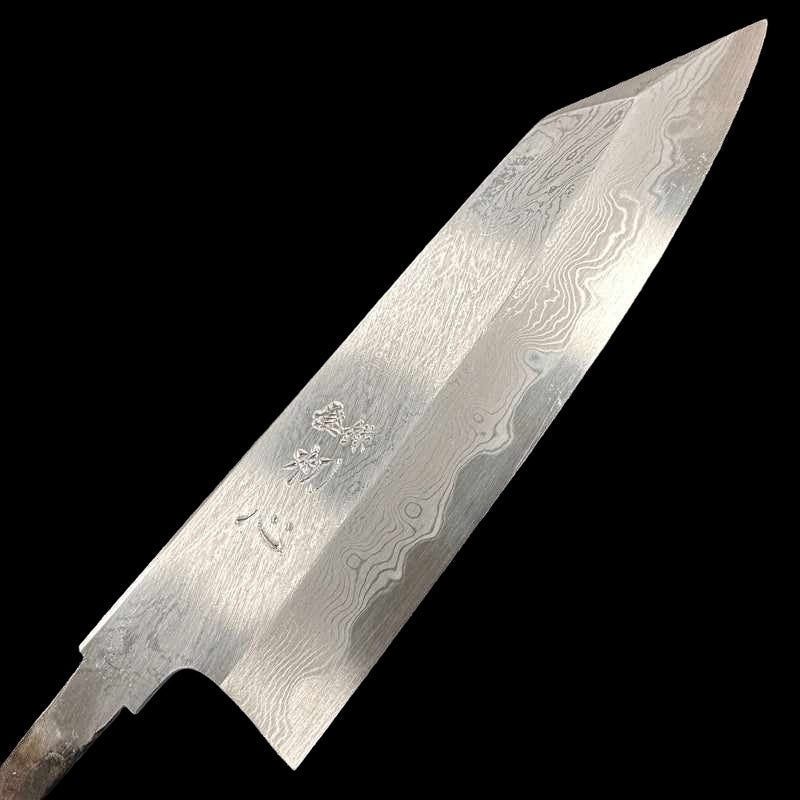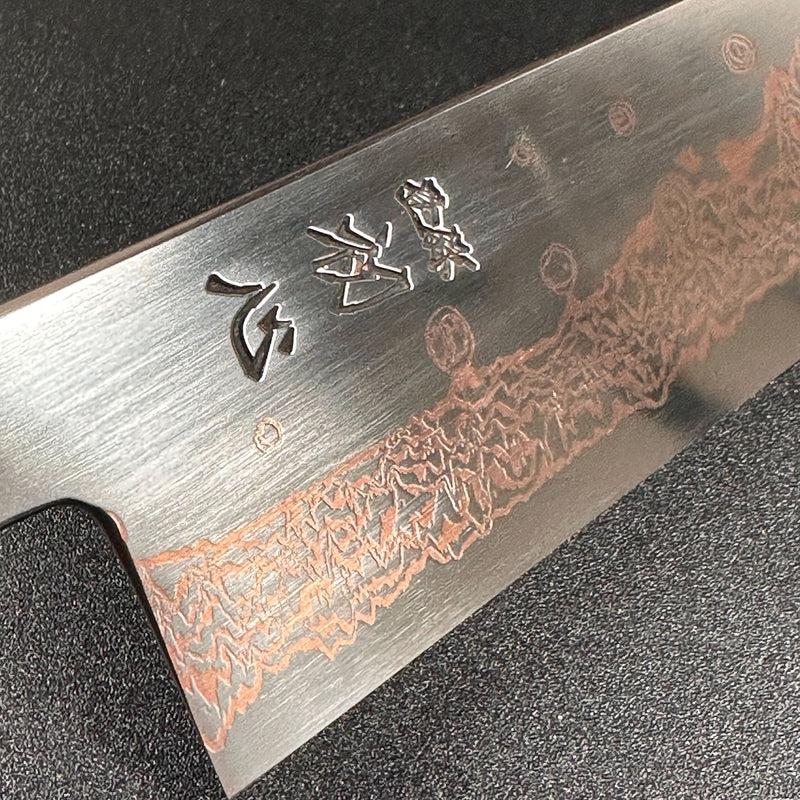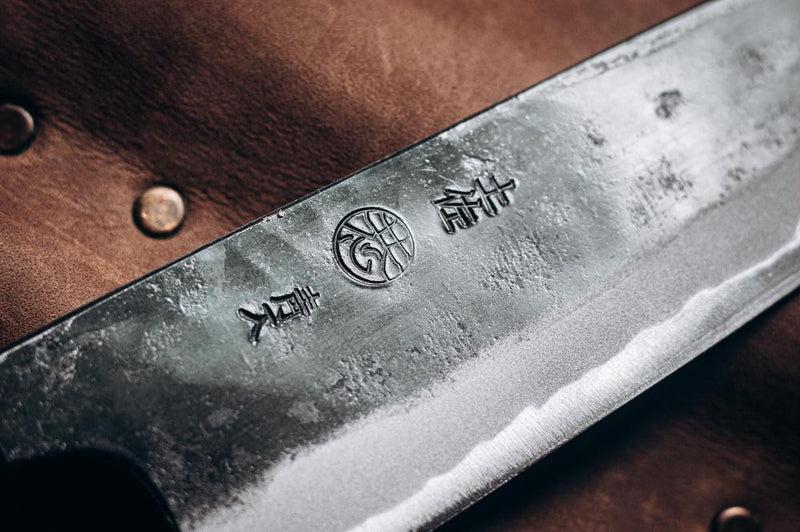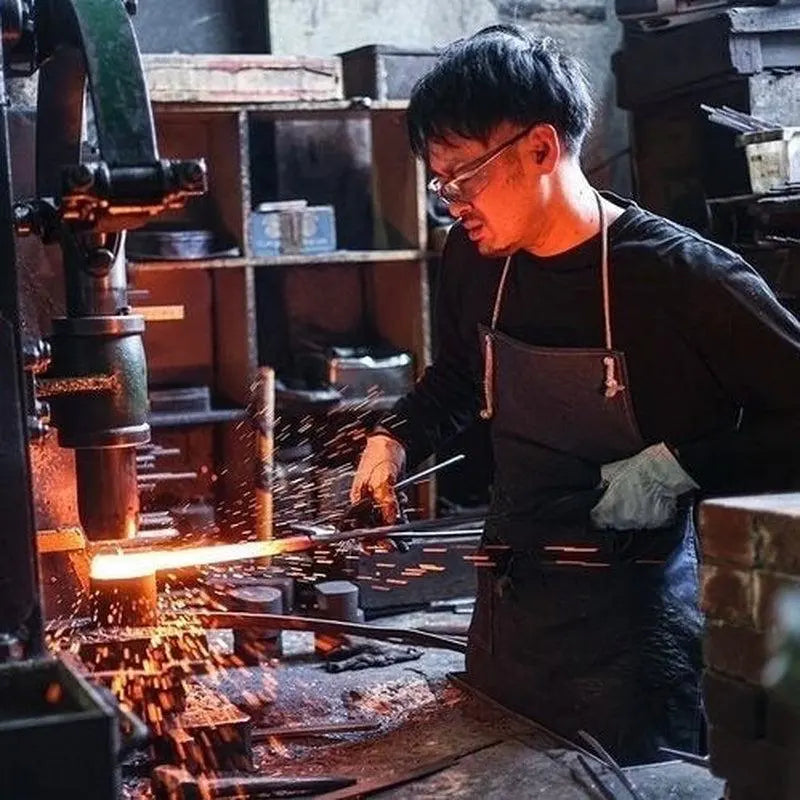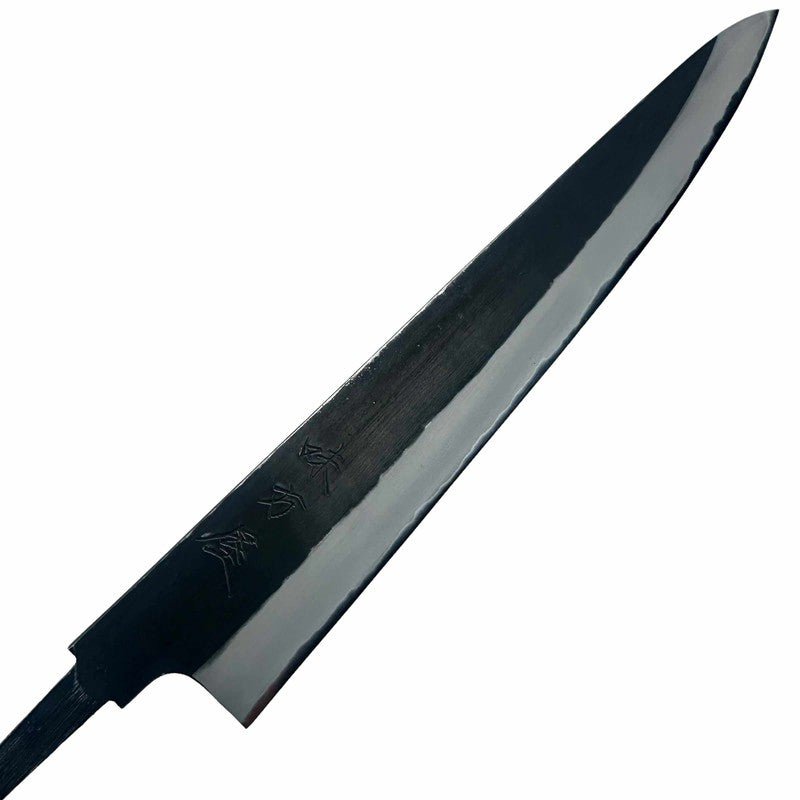
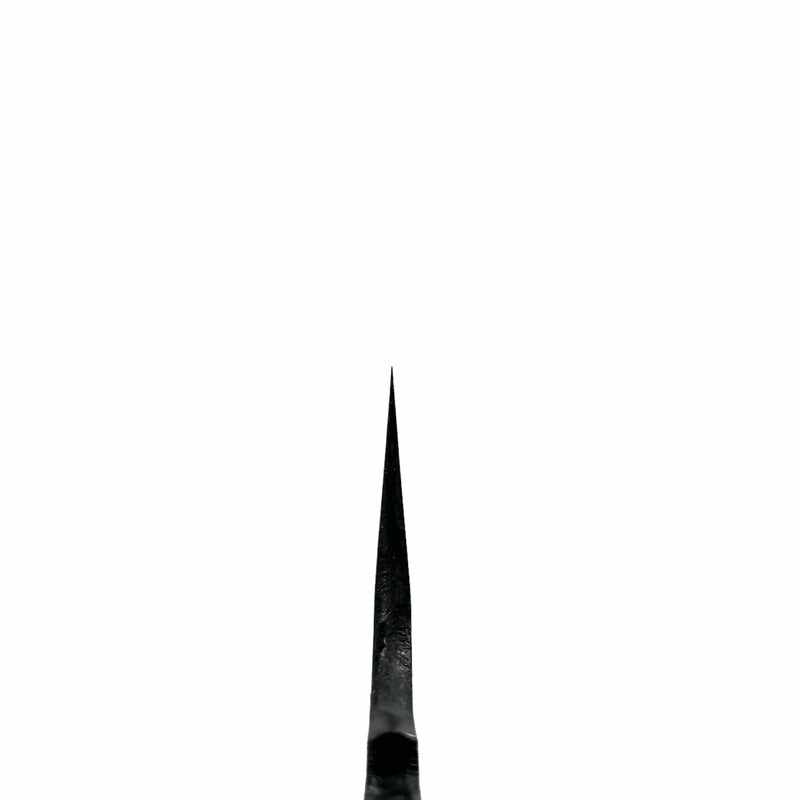
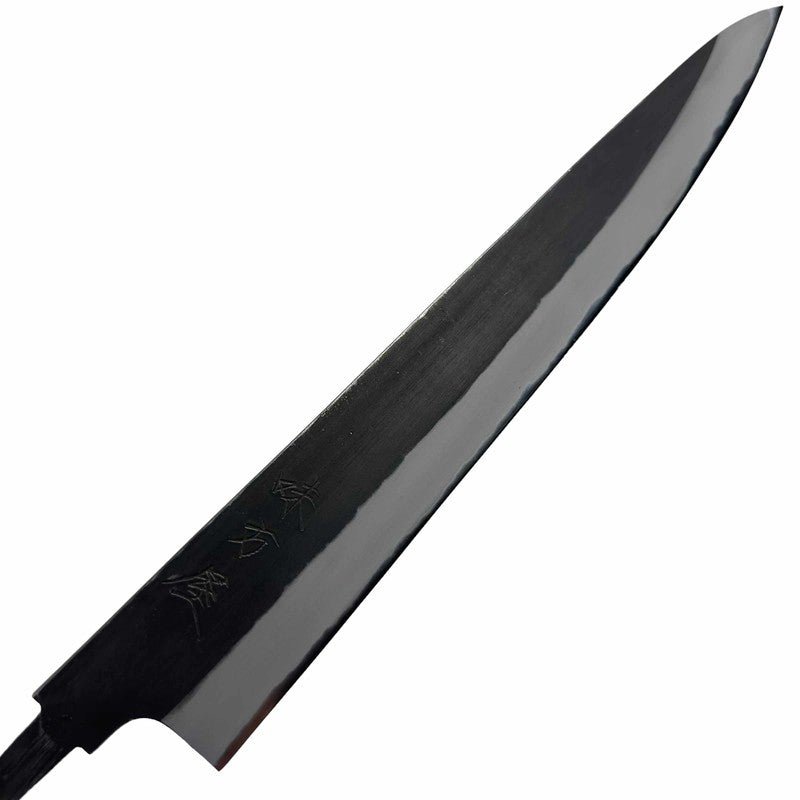
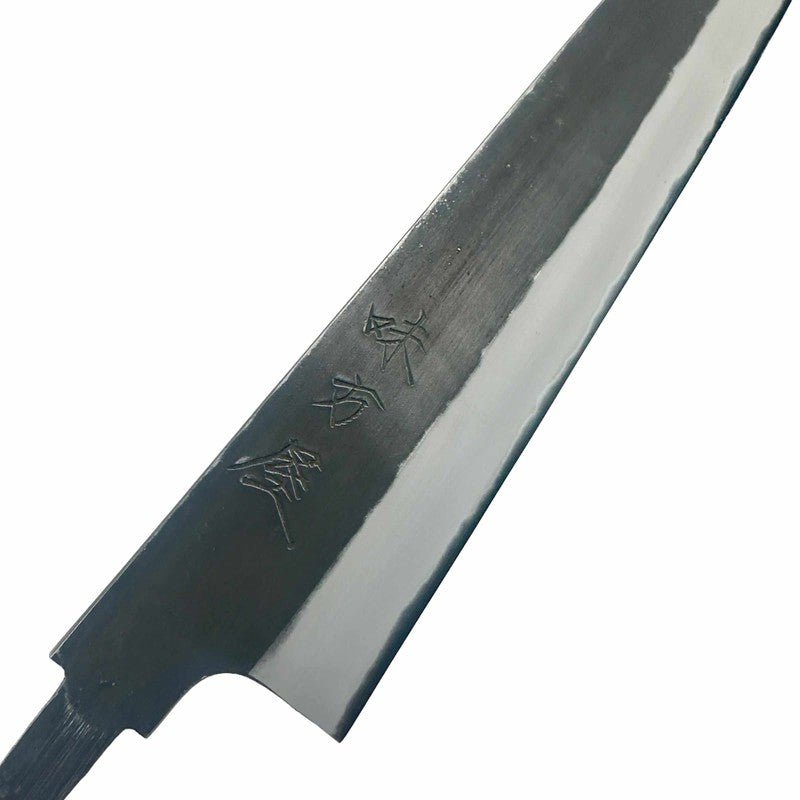
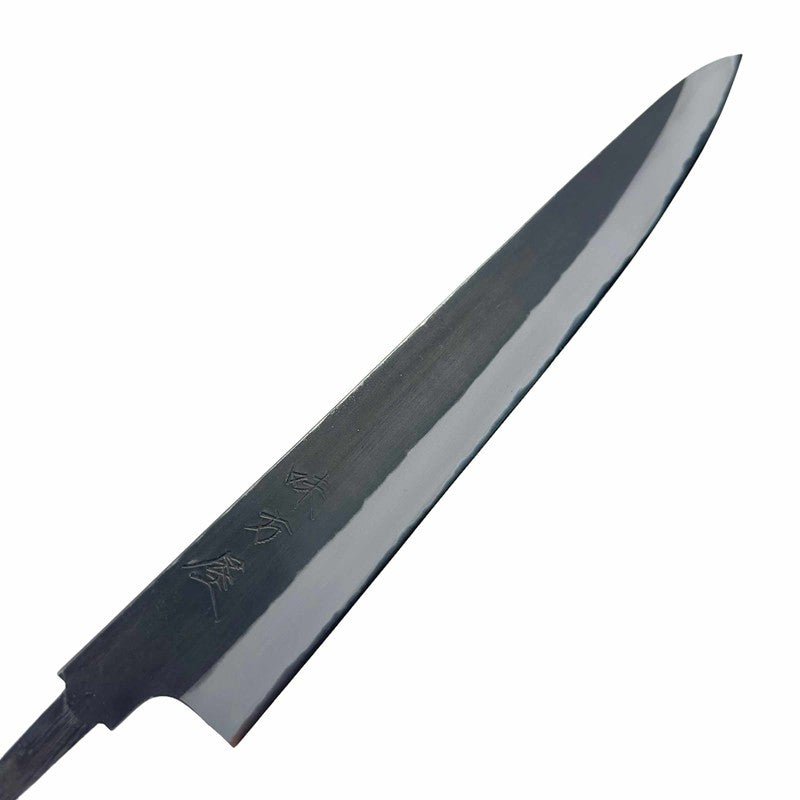
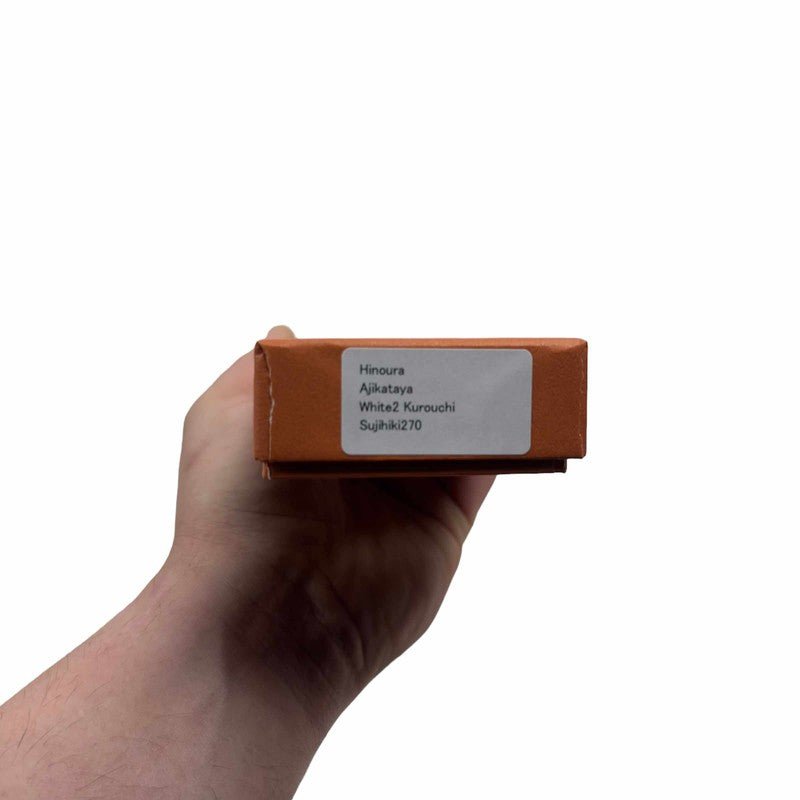
Mutsumi Hinoura Ajikataya White #2 Kurouchi Sujihiki 270mm No Handle
Tax excluded. Shipping calculated at checkout
We take responsibility for getting the perfect knife to your door in good condition.
FREE SHIPPING in the United States on orders over $99. Orders are typically fulfilled within 2 business days, with shipping times varying by destination.
Each package has full insurance on every item.
Hinoura Sujihiki with Shirogami #2 Steel - A Testament to Centuries of Craftsmanship
Discover the pinnacle of Japanese knife-making with the Hinoura Sujihiki. Handcrafted by fourth-generation artisan, Mutsumi Hinoura, this knife blends tradition with innovation. Featuring a Shirogami #2 steel core and stainless cladding, it promises precision and longevity.
Legacy of Hinoura Hamono
Under the esteemed "Ajikataya" brand, this Hinoura creation carries forward a legacy spanning over a century. The signature Kurouchi finish makes this knife a true work of art, with forging techniques that prioritize ease of sharpening and extraordinary sharpness retention.
Specifications
- Origin: Sanjo, Niigata Prefecture, Japan
- Craftsman: Mr. Mutsumi Hinoura
- Brand: Hinoura Hamono
- Knife Type: Sujihiki
- Construction: San Mai
- Grind: Double-edged Blade (50/50 Grind)
- Core Steel: Shirogami #2 (White #2)
- Cladding: Stainless Steel
- Hardness: 62 HRC
- Blade Length: 270mm (10.6")
- Blade Height (at heel): 39mm
- Spine Thickness: Above heel: 3.1mm, Middle: 2.2mm
- Handle Material: No Handle
- Ferrule: No Handle
- Overall Length: 400mm
- Weight: 162g (5.71oz)
- Engraving: Kanji "Ajikataya" (味方屋)
About Hinoura Hamono 日野浦 刃物
With roots tracing back to the Meiji era, Hinoura Hamono stands as a testament to impeccable craftsmanship and tradition. Founded by Shintaro Hinoura and now led by the father-son duo, Tsukasa and Mutsumi Hinoura, the brand has crafted unparalleled knives for over 100 years in Sanjo city, Niigata. Their knives are not just tools but an expression of the artisan's soul, revered by top-tier knife artisans in Japan.
Care & Maintenance
Shirogami #2 steel, while renowned for its sharpness, is not stainless. Ensure the knife is wiped dry after each use. Over time, a patina will develop, which is natural for carbon steel. Avoid cutting bones, frozen foods, and hard fruit pits. Use wood or rubberized cutting boards for best results. For sharpening, using whetstones is recommended.
Tokushu's Guarantee
We take full responsibility for ensuring your knife arrives safely and in perfect condition. If you experience any shipping delays, damage, or other issues, don’t worry—we’ve got you covered. Contact us, and we’ll handle everything until your knife is in your hands.
Insured and Protected
We provide shipping insurance on every order for your peace of mind. If your package is lost or not delivered, we handle the claim process to secure a refund or replacement for you.
For assistance, contact us at Tony@Tokushuknife.com.
Shipping information
FREE SHIPPING in the United States on orders over $99. Orders are typically fulfilled within 2 business days, with shipping times of 1 - 5 business days via UPS Ground.
For international orders, we ship via UPS - DDP (Duties Paid), meaning all customs duties, taxes, and VAT are included in the product price for a smooth, hassle-free delivery. Shipping times vary by destination and are in addition to our 2-business-day fulfillment period.
Need help? We handle all shipping issues, including lost packages and claims—contact us at Tony@Tokushuknife.com for support!
Choose options







Cut Above the Rest
Built to Last
The high-grade steel we use is carefully selected and forged using techniques that have been proven over centuries. These knives aren’t just sharp – they’re built to stay that way through years of daily use. Plus, they develop a beautiful patina over time that tells the story of your cooking journey.
Need help?
Frequently Asked Questions
Order
We take full responsibility for ensuring your knife arrives safely and in perfect condition. If you experience any shipping delays, damage, or other issues, don’t worry - we’ve got you covered. Contact us, and we’ll handle everything until your knife is in your hands.
We provide shipping insurance on every order for your peace of mind. If your package is lost or not delivered, we handle the claim process to secure a refund or replacement for you.
For assistance, contact us at Tony@Tokushuknife.com.
FREE SHIPPING in the United States on orders over $99. Orders are typically fulfilled within 2 business days, with shipping times of 1 - 5 business days via UPS Ground.
For international orders, we ship via UPS - DDP (Duties Paid), meaning all customs duties, taxes, and VAT are included in the product price for a smooth, hassle-free delivery. Shipping times vary by destination and are in addition to our 2-business-day fulfillment period.
Need help? We handle all shipping issues, including lost packages and claims—contact us at Tony@Tokushuknife.com for support!
Level up with a set
For a custom consultation to build your perfect knife contact Tony directly at Tony@Tokushuknife.com


Carter Cutlery Muteki #5529 Funayuki 190mm 7.48" by Taylor Shields
This Muteki Funayuki kitchen knife by Taylor Shields offers exceptional performance with its Hitachi White #1 steel core laminated with 410 stainless steel for superior sharpness and durability. The handle, made from Thuya and Leopardwood, is complemented by white and Tiffany blue G10 liners, providing a unique and elegant touch. Perfect for a wide range of kitchen tasks, this knife is as functional as it is beautiful.
Specifications:
- Style: Muteki, Funayuki Kitchen Knife
- Blade Steel: Hitachi White #1 Steel Core, Laminated with 410 Stainless Steel
- Finish: Forged/Polished
- Handle: Thuya, Leopardwood
- Liner: White G10, Tiffany Blue G10
- Blade Length: 7.48″ (190 mm, 6.27 sun)
- Blade Thickness: 0.082″ (2.09 mm)
- Blade Width: 1.81″ (46 mm)
- Weight: 4.87 oz (138 g)
- Maker: Taylor Shields
- Brand: Muteki
- Knife Type: Kitchen Knife
- Kitchen Knife Style: Funayuki
- Steel: White/Stainless
- Steel Finish: Forged/Polished
- Handle Material: Thuya, Leopardwood with G10 liners
- Weight Range: 4-4.99 oz

